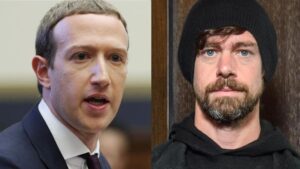
On Wednesday, CEO of Twitter, Jack Dorsey announced that starting in late November the social media platform would be banning all political ads.
The decision came just a few weeks after Facebook announced that it would allow political ads on its platform, even if there was falsified information in the ad.
Facebook CEO, Mark Zuckerberg, had a senate hearing in Oct. where Congresswoman Joyce Beatty and Rep. Alexandria Ocasio-Cortez heavily questioned him about political and civil rights policies that the platform has allowed.
Dorsey has taken a different direction with Twitter and has decided that the banning of all political advertisements is more beneficial in the long run for Twitter users.
Dorsey laid out his plan of action and reasoning behind his decision in a thread of tweets.
“While internet advertising is incredibly powerful and very effective for commercial advertisers, that power brings significant risks to politics, where it can be used to influence votes to affect the lives of millions,” Dorsey said.
After news broke, some users were afraid of what that exactly means for the future of digital campaigning on social media. Others were relieved and saw the decision as a way to keep constituents safe from biased and false information.
Many millennials and gen z constituents use social media to stay informed on news and current events. Starting Nov. 22 if they would like to see policies and platforms from candidates, they may have to look a little harder on Twitter.
PEW Research Center reported in 2015 that the majority of millennials primarily use Facebook as their source for news on politics.
According to PEW, “about six-in-ten online Millennials (61%) report getting political news on Facebook in a given week. Baby Boomers’ political media habits, on the other hand, are strongly rooted in local TV.”
While many advertisement changes are coming to various social media platforms, Baby Boomers and other older generations will be impacted less by those changes.
Dorsey and Zuckerberg have rarely ever agreed on how to run their digital platforms, but this disagreement may have the biggest impact on voting in the 2020 election.
Zuckerberg so far is standing by his claims that freedom of speech and expression should be upheld in regards to political ads.
In October, Zuckerberg spoke at Georgetown University where he expounded on his decision.
“I don’t think most people want to live in a world where you can only post things that tech companies judge to be 100% true,” Zuckerberg said.
This is a split debate as many can see both sides of the argument.
Twitter users can expect Dorsey to release a finalized policy on Nov. 15 before it goes into full effect the following week.